By Bay Area Lyme Foundation Ticktective Podcast Transcript
In this conversation with Dana Parish, Todd Maderis, ND, talks about his extensive experience treating tick-borne infections, chronic viral infections, mold illness, and other conditions associated with complex chronic illness. He underscores the significance of identifying the root causes of symptoms and how tailoring individualized treatment approaches is key to healing. Dr. Maderis also delves into the role of trauma in chronic illnesses and emphasizes the importance of gut healing and inflammation reduction through dietary choices. Dr. Maderis acknowledges the challenges involved in addressing chronic diseases and stresses the importance of a personalized, patient-centric approach.
“I think a lot of times in conventional medicine, we don’t think beyond the room that we’re sitting in with a patient, we have to ask about the environment. We have to look at more than just the symptoms the person’s presenting with in the office.”
– Todd Maderis
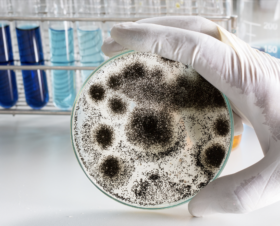 Dana Parish: I am so excited today because I’m here with Dr. Todd Maderis. Thank you so much for being here today. I’m thrilled to talk to you. Let me tell you a little about Dr. Maderis. He’s the founder and medical director of Marin Natural Medicine Clinic in the San Francisco Bay Area. He specializes in treating tick-borne infections, chronic viral infections, mold illness, and other conditions associated with complex chronic illness such as Mast Cell Activation Disorder, and ME/CFS. His approach to treating chronic illness is to identify all underlying causes of symptoms to provide a clear direction for treatment. With over a decade of experience treating Lyme disease and complex chronic illness, he knows that every patient is unique and requires individualized treatment therapy. Welcome! It’s great to see you!
Dana Parish: I am so excited today because I’m here with Dr. Todd Maderis. Thank you so much for being here today. I’m thrilled to talk to you. Let me tell you a little about Dr. Maderis. He’s the founder and medical director of Marin Natural Medicine Clinic in the San Francisco Bay Area. He specializes in treating tick-borne infections, chronic viral infections, mold illness, and other conditions associated with complex chronic illness such as Mast Cell Activation Disorder, and ME/CFS. His approach to treating chronic illness is to identify all underlying causes of symptoms to provide a clear direction for treatment. With over a decade of experience treating Lyme disease and complex chronic illness, he knows that every patient is unique and requires individualized treatment therapy. Welcome! It’s great to see you!
Todd Maderis: Thank you for having me. It’s great to be here.
Dana Parish: How’d you get into this mess?
Todd Maderis: Gosh, that’s always a great question. You start going down a rabbit hole and sometimes you wonder, but I wouldn’t change a thing. My first five years of practice, I was treating people with common complaints: digestive issues, fatigue issues, thyroid issues, etc. I’m a naturopathic doctor, so we tend to see people that come with common complaints that maybe they’re not getting resolved in conventional medicine. Then one visit, I had a patient that brought in a Lyme disease test result. It was an iGenex test, but back then the results were pretty hard to interpret.
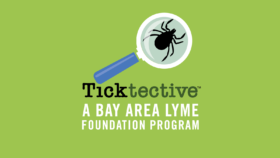

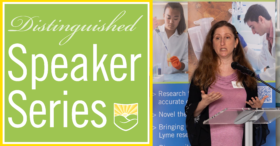
 “I want to leave you with hope. I think we’re going to be unstoppable because I think that these are solvable problems. These are answerable questions. I think that there are already a lot of existing tools in immunology that just need to be brought into the fight, and we can change this.”
“I want to leave you with hope. I think we’re going to be unstoppable because I think that these are solvable problems. These are answerable questions. I think that there are already a lot of existing tools in immunology that just need to be brought into the fight, and we can change this.” 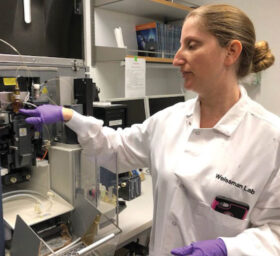 Any respectable pathogen that can establish a persistent infection needs to figure out your immune system to the point that it can evade it. The fact that it has persisted means that it was able to evade your immune clearance. And so, I got to that from a very interesting direction working on immune regulation, trying to understand these brakes on the immune response and how they impact the response to infection. The immune system has the power to kill you and obviously, nobody has any incentive for that to happen. So, there are a lot of mechanisms in place to put brakes on the immune system and reign it in. One of the huge developments in cancer over the last two decades has been reevaluating the question: can we take those brakes off? So in my postdoc, I was studying a particular checkpoint where this was turning into an exciting immuno-oncology target, and I said, ‘I want to look at how this checkpoint is used in infection.’ I realized that this checkpoint was being used to help you survive an acute infection, but created a vulnerability for pathogens to evade immune clearance and establish chronic infection much like it allows cancer cells to evade immune clearance. In an amazing collaboration with Irv Weissman, Balyn Zaro, and Jenifer Coburn we realized that the bacteria that cause Lyme disease manipulate this brake and that’s how I became fascinated with Lyme. But I also became concerned about turning off this brake in cancer patients because I was concerned about what would happen if you used this on cancer patients during an active infection. Indeed, the
Any respectable pathogen that can establish a persistent infection needs to figure out your immune system to the point that it can evade it. The fact that it has persisted means that it was able to evade your immune clearance. And so, I got to that from a very interesting direction working on immune regulation, trying to understand these brakes on the immune response and how they impact the response to infection. The immune system has the power to kill you and obviously, nobody has any incentive for that to happen. So, there are a lot of mechanisms in place to put brakes on the immune system and reign it in. One of the huge developments in cancer over the last two decades has been reevaluating the question: can we take those brakes off? So in my postdoc, I was studying a particular checkpoint where this was turning into an exciting immuno-oncology target, and I said, ‘I want to look at how this checkpoint is used in infection.’ I realized that this checkpoint was being used to help you survive an acute infection, but created a vulnerability for pathogens to evade immune clearance and establish chronic infection much like it allows cancer cells to evade immune clearance. In an amazing collaboration with Irv Weissman, Balyn Zaro, and Jenifer Coburn we realized that the bacteria that cause Lyme disease manipulate this brake and that’s how I became fascinated with Lyme. But I also became concerned about turning off this brake in cancer patients because I was concerned about what would happen if you used this on cancer patients during an active infection. Indeed, the 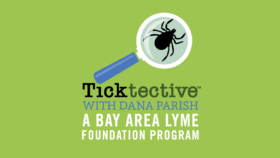
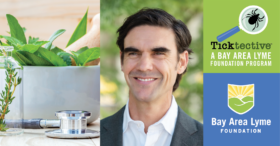
 Dana Parish: I am so excited today because I’m here with Dr. Todd Maderis. Thank you so much for being here today. I’m thrilled to talk to you. Let me tell you a little about Dr. Maderis. He’s the founder and medical director of
Dana Parish: I am so excited today because I’m here with Dr. Todd Maderis. Thank you so much for being here today. I’m thrilled to talk to you. Let me tell you a little about Dr. Maderis. He’s the founder and medical director of 